"Planet ISKCON" - 38 new articles
Japa Group: The Mood Of ChantingThe mood of chanting the holy name combines the actions of mind and heart-namely thinking and feeling. Sri Caitanya Mahaprabhu advised all devotees to be free from false ego, and to think oneself lower than a blade of grass. With feelings of deep submission and surrender one should beg Sri Radha for service From Art Of Chanting Hare Krsna by Mahanidhi Swami ISKCON Melbourne, AU: Daily Class - Kesava PrabhuSrimad Bhagavatam 11.21.12 - Remembering Krishna will ultimately make you pure.
Sita-pati dasa, AU: Autotune makes HistoryThere are 12 hours left on the ebay auction for my rack-mounted autotune unit. It's currently going for $155, so you could get it for a song. It seems that the world of kirtan is not yet ready for Autotune, but as Castro said: "History will be my judge".    Kurma dasa, AU: Kurma on Campus Part One: La Trobe University Bundoora 2010Here we are on day one of our La Trobe University Cookery Weekend. It's Bundoora Campus in Melbourne, and we're all poised to dive into another kitchen experience.
Jenny is a cooking groupie of mine. Here we're checking all the ingredients for the Sambar dal. There's something going on in that saucepan. Amira takes a peek... It's alive!!! Fresh Kurma Cookbooks Drilling for soup. "Eat your heart out, BP". Daikon radish. How very zen. Claire having fun. Berries a'slidin'.
Fresh coriander cutting lesson. A tasty South Indian salad. 'Night on Carrot Mountain'. Saudi Baharat-scented chickpeas with Fresh Greens.
Another class, another banquet.
Kurma dasa, AU: Kurma on Campus Part Two: La Trobe University Bendigo 2010This is day-two of our La Trobe University Cookery weekend. We're on Bendigo Campus, it's Sunday morning. The rain is falling, it's cold, but we don't care, because we're snug in the kitchen.
We commence our class with the usual sit-down intro. Lots of notes taken, University lecture-hall style.
I do a lot of 'show-and-tell' today. The 'boys and girls' want to see some knife techniques. I show them exactly how thick to cut the chilies for the Javanese Chili Pickle, Sambal Bajak.
Team Bendigo 2010 chop semi-dried tomatoes for the Macadamia Pesto.
Today's South Indian dal is a nice hot and sour Sambar. Sweet red peppers are one of the ingredients.
Tim is our youngest participant. He's enjoying the cooking camaraderie.
I'm doing the run-around. A big commercial kitchen keeps you fit!
Let's talk about lentils.
The dal is on, and we're getting in the groove.
I show them how to toast the macadamia nuts.
Caution - hot chilies!
Practically a group hug. We huddle as Brad, Qantas Pilot, cooking afficionado, and really nice guy, finishes off the Sambal Bajak.
Decisions, decisions.
Job well done, we sit for lunch. Entree is a nice big bowl of exquisitely complex Sambar Dal, a succulent slab of fresh Panir Pakora battered and crisp with a good slurp of hot, dark, mysterious and very tasty Sambal Bajak, alongside the BBQ Asparagus with the Macadamia and Semi-dried Tomato Pesto and shaved Grana Padano. Yes, you may drool.
The real Meal Deal - eating with Kurma.
Srila Prabhupada's Letters1968 June 7: "It is Krishna's desire and blessings; as a Sannyasin, I should not fix up at a certain place and take your service comfortably. Krishna wants me traveling throughout the whole Western world. So don't mind very much that I have not received the permanent visa." Srila Prabhupada's Letters1968 June 7: "I'm going to London and if you all wish to come there, then you can prepare for the trip. If we can organize a nice Kirtana party and if we can travel in the European countries supported by our books and literatures, than I am sure it will be a great success for our missionary work." Srila Prabhupada's Letters1969 June 7: "So your main business should be to spread Sankirtana, becoming as tolerant as the tree and humbler than the grass. If you have any trouble do not leave the company of devotees. That will not help you, even though there may seem to be so many difficulties." Srila Prabhupada's Letters1969 June 7: "I have appreciated so much your letter. How much potency is there in this Sankirtana Movement. There is nice potential there so try to establish a very good center and I think Krishna is already giving impetus for this purpose." Srila Prabhupada's Letters1969 June 7: "The roar of your Sankirtana in Hawaii will soon be heard in neighboring places including Japan and Hong Kong. The Goddess of Fortune was born by the churning of the ocean so the ocean will also help in spreading the glories of the ocean's daughter." Srila Prabhupada's Letters1971 June 7: "All my disciples are requesting me to revive my translating work and I would like to do so for the remaining days of my life. So you have to help me get it done as quickly as possible. When I go there I shall give you so much press work you will be over-burdened." Srila Prabhupada's Letters1974 June 7: "It is certainly miraculous how he is distributing so many books. If he takes sannyasa he may not be able to assume disguise for selling books in public. So I have decided for the time being not to award sannyasa order." Srila Prabhupada's Letters1974 June 7: "I have placed one picture of Radha Giridhari on my desk and I am always admiring the beautiful decoration and the transcendental beauty of these deities. So if you can maintain and increase this standard in deity worship, everything will come out successfully." Dandavats.com: Narasimha Dev Harinama in Central LondonParasuram das: There are now expensive fees for processions - This years London Rathayatra will cost £30,000 whereas in years past it was free. We are hopeful of changes in the law for next year. H.H. Sivarama Swami: Avoid gossip and village talk by talking of Krsna
Rupa Madhurya das, TX, USA: Bhajan - New Year's Eve 2010 - Mukunda Datta das - 17/22Mukunda Datta das singing a Hare Krishna bhajan during the New Year's Eve 12hr bhajan. Dallas, TX
Download: 2010-01-01 - New Year Eve Bhajans - 17 - Mukunda Datta das.mp3 H.H. Satsvarupa das Goswami: '460' from The Yellow Submarine3:54 A.M.I have a regular new pattern where I wake up approximately 9 P.M. with a mild headache and subdue it. I then sleep through for the rest of the night without further pain. This morning I woke up from a dream at 1:20 A.M. and couldn’t sleep anymore. I got up and began chanting. My first eight rounds were somewhat distracted. I wasn’t able to keep my mind on the sound vibration of the holy names. My mind dwelt in other corners of the vast domain of the flickering mind. I then stopped chanting and wrote the Prabhupada Smaranam about Prabhupada’s grave demeanor while looking at the Deities. After doing that I went back to chanting again. My chanting was much improved. Doing serious writing has a definite connection with my japa. It improved my mindset, and the japa was attentive and open. It was a new discovery for me to notice the favorable connection between writing and chanting, which should be obvious for me since I have so much tendency to express myself devotionally through writing. Now I have chanted about ten rounds and have good hopes that because of serious writing the rest of my chanting will be improved. Your mind went back
H.H. Satsvarupa das Goswami: 'Devotee is Expert' from The Yellow SubmarinePrabhupada Smaranam  In January of 1974 in Hawaii, Prabhupada told us there was a day in the year when the guru cooks for his disciples. He went into the kitchen, and some of his disciples joined him to watch and to help under his direction. He cut vegetables and told the devotees how to cook them. He said the trick to making good kachoris was to double-fry them in ghee: drop them in once and take them out to harden, and then dip them in again, this makes the best crust. He walked around the kitchen tending to the different preparations, and he also sat on a chair and told the disciples what to do, using them as his hands and arms. He actually cooked and supervised everything closely. He made many preparations, and they all came out very well. When Prabhupada added spicing he didn’t measure it with a lined cup or with a certain sized spoon. He would take pinches of the spices between his fingers and by intuitive approximation use just the right amount. It was an exciting and sweet atmosphere to be working intimately beside him in the kitchen. His mood was serious and efficient. He corrected devotees when they made mistakes and was very “hands-on” and strict about doing it right. He didn’t allow for loose talk or devotees just standing around idly. He ate by himself but later met with the devotees to discuss their response to the meal. Everyone said it was very delicious and expertly prepared. He asked some of us how many kachoris we had eaten. Some of us answered “two.” He said he had also eaten two and that two kachoris was enough. I don’t know if that practice is to be observed on a yearly basis, but it was a wonderful occasion how he spontaneously said he was going to cook for us and then did it so expertly. H.H. Satsvarupa das Goswami: 'Servant of the Servants' from The Yellow SubmarineKing Prataparudra entered the
Prataparudra received the mercy
These are the desires of the topmost
But I have little gas in
Now I want to live alone
H.H. Satsvarupa das Goswami: 'The Island' from The Yellow SubmarineFree writeThis mini island is useless for all human purposes. You can’t climb onto it, and you can’t get off it. And even if you could get there, there’s nothing you could do there, no way you could sustain yourself. So it is a rough analogy to living in the material world. Of course, it’s easy to enter the material world, all you have to do is misuse your minute amount of free will and defy the supreme will. Then you will fall into the material world. Once there, the living entity can’t do much. There’s not even land to cultivate a good garden. On this island it looks like you would have no companionship. Or if there were a lot of people it would be too crowded. It is not a fit place for a gentleman or lady to live. You would feel trapped if you had to live your life there. I see some little paths but no way to get off the island unless you jumped into the water and that looks very dangerous. What if you had to call this place home? You wouldn’t want to. You’d want to transfer to another land. Someone could say you should just accept your fate if you had to live here and make the best of a bad bargain. Maybe there is some kind of plant growing here like hallucinatory mushrooms which could make you forget your reality. It could be bearable if you had copies of Vedic literature and could understand the purpose of life is not to find material happiness but attain self realization. If the small handful of people living there could form a devotional community and regularly chant Hare Krishna and read about Krishna it would be tolerable. And if conditions were so bad that the life duration was shortened Srimad-Bhagavatam says a moment of self-realization is better than a very long life without spiritual consciousness. We could write a memoir of life on this island and put it in a box for anyone who came later to teach them how we handled the situation by giving self-realization and they could do the same. It wouldn’t be so bad if you could have the freedom of self-realization. And if you could offer a leaf or water and fruit to a Deity of Krishna, you could live on this mini island without going crazy and giving up your life. Gauranga Kishore das,USA: Scientists Create Life?With the recent announcement by the scientific community of the creation of a living organism using synthetic DNA many people are wondering about the religious implications of this achievement? Religion has long claimed that God created life, will the developments of modern science disprove this crucial piece of the religious world view. In response to the latest achievements of a group of scientist of the Venter Institute headed by microbiologist Craig Venter headlines read, Scientists Create First Self-Replicating Synthetic Life. Such headlines may have the religiously faint of heart amongst us worried that science is laying seige on the very capital of the empire of theistic belief, the idea that life comes from God, the idea that there is more to life than physical laws, the belief in a soul that resides within and animates the body. Should we be questioning our beliefs in light of this new discovery? First we should be clear on exactly what has been done because some of the headlines like the one above may be misleading. The scientists of the Venter institute have not created life, they have synthetically replicated the DNA sequence of a micro-organism, removed it's original DNA and replaced it with the synthetic DNA. The experiment was a success and the cell began to reproduce. So what has really been done could be described as a DNA transplant, which is significantly short of creating life, from the ground up. When asked in an Interview on CNN whether he had created life Venter responded, "We created a new cell. It's alive. But we didn't create life from scratch. We created, as all life on this planet is, out of a living cell." Venter and his team did not create life they implanted synthetic DNA into a living micro organism. Practically this is a big breakthough in the field of microbiology that could have some very important implications in the future but despite this new breakthrough in genetics the core philsophical issues still remain untouched in regards to the fundamental nature of life. The most fundamental question of religion and philosophy is how we get here? Until Darwin came along there was no non-religious answer to this question. Darwin made it possible for a person to be an intellectual atheist, at least superficially. Darwin's answer was random variation or what we now call random mutation. Darwin's basic scientific idea of variation and natural selection was an amazing insight into how species can change and adapt over time but huge questions still remain. Is it really possible for one species to change into another? Up till now there is not really any evidence of this. The fossil record has been unforthcoming in its support of Darwin's hypothesis. Species seem to appear in the fossil record fully formed and disappear the same way when new fully formed species take their place. Genetic evidence seems to strongly confirm Darwin's idea of common ancestry however common descent doesn't prove Darwinian evolution to be true, because what really makes Darwin's theory controversial is not the idea of common descent but the idea that the primary force at work in the evolutionary process in randomness, not divine intervention. Ofcourse all questions about evolution aside there are still many questions about how the very first living organism arose. The Miller Urey experiment proved that amino acids could be randomly generated in a certain environment but this is far different from life. Even if it is someday shown exactly how life could've come about by totally material processes, and exactly which genetic mutations led to the creation of every organism on the plant, even if we could have a totally naturalistic explanation for all life, we are still left with the problem that these events are so highly improbable that a naturalistic explanation is insufficient to explain them. The odds are so stacked against the creation of life and the evolution of species by Darwinian processes that the generation of life from natural elements and the creation of new species requires a supernatural explanation. The esteemed Carl Sagan estimated that the possibility of human life being randomly generated at 10 to the 2,000,000,000. This number is so large it is practically impossible to even fathom. Borel's law states that any event with odds of less than one in 10 raised to the fiftieth power is impossible, this is because the number of atoms in universe is only estimated to be ten raised to the eightieth power. The odds against the creation of life are almost infinitely more than the number atomic particles in the universe! The improbability of life can be extended out further into the universe to include the fundamentals law of nature and the specific events in our universe and when we do find that life is even more improbable which lends even more strength to a supernatural explanation. One example is the expansion rate of the universe in relationship to the forces of gravity. Stephan Hawking comments, “Why did the universe start out with so nearly the critical rate of expansion that separates models that recollapse form those that go on expanding forever, that even now, 10 thousand million years later, it is still expanding at nearly the critical rate? If the rate of expasion one second after the Big Bang had been smaller by even one part in 100 thousand million million, the universe would have recollapsed before it ever reached its present size. . .It would be very difficult to explain why the universe should have begun in just this way, except as the act of a God who intended to create beings like us.” Even Francis Crick had to admit, "An honest man, armed with all the knowledge available to us now, could only state that in some sense the origin of life appears at the moment to be almost a miracle, so many are the conditions which would have had to have been satisfied to get it going." The huge improbabilities in the existence of life ranges all the way from the physical laws of the universe, to the creation of the universe, to the individual events in the creation of life, and the evolution of one species into another lead me to believe there is a conscious force guiding the apparently random processes. Although the latest achievement of molecular biology are amazing achievement which may have profound implications for the advancement of science and technology, it is still far short of creating life. And the creation of life in a laboratory would still be far far short of life being randomly generated in a universe that is perfectly suited to support life. I personally don't think that life will even be able to be created artifically BUT even if life is created artificially I don't think it weakens the theological position. Venter and his team spent the last 15 years and over forty million dollars to create and implant their synthetic DNA into a living cell. There doesn't seem to be anything random about that. Rather it only seems to strengthen the design hypothesis. Rather than disprove the God hypothesis the advancements of modern science only seem to strengthen it. The more we learn about the Universe, the more we learn about life, the less likely it seems that it could all just be an accident. The more we learn we more we see the evidence for design, the more we see the unseen hand of God at work in the universe. I think Harry Rimmer said it perfectly when he said, “I fail to see how the natural man can scoff at the faith of a Christian who believes in one miracle of creation, when the unbeliever accepts multiplied millions of miracles to justify his violation of every known law of biology and every evidence of paleontology, and to cling to the exploded myth of evolution.” Kirtan Australia.com: Amala Kirtan: “Kirtan – the Yoga Bliss” Tour
KirtanAustralia.com is proud to present Amala Kirtan, on his first visit to Australia. Born in Brazil to a family of kirtaniyas, Amala spent years in his youth in Bengal, India, studying the Bengali style of singing. Amala has been called the “Pavarotti of Kirtan”. His first album “Moon Over India” showcased his impressive vocal range and fused his Brazilian heritage with traditional Bengali kirtan to produce a truly unique sound. That unique voice reached a wider world audience when Amala released the collaborative album “The Turning Point” with Vaiyasaki. Now based in Dallas, Texas, he delights the local kirtaniyas there with his exceptional voice and harmonium playing. Amala also returns twice a year to Brazil, where he is a mainstay in the Brazilian 24 hour kirtan festival. Amala will be accompanied on his Australian tour by local kirtan band “World Sankirtan Party”, who supported Dave Stringer, Jai Uttal, and Madhava on their recent Australian tours. You can view Amala Kirtan’s myspace page here. Canberra, ACT Saturday July 17, from 9am
Sunday July 18, 7pm
Sydney, NSW Tuesday July 20, 7.30pm
Byron Bay, NSW Thursday July 22, 8pm
Murwillumbah, NSW Saturday July 24, 5pm
Sunday July 25, from 9am
H.H. Sivarama Swami: Baby girl offered to Radhe SyamaKamala-manjari is the daughter of Balanuja prabhu and Ali-priya mataji H.H. Bhakticharu Swami: Śrīmad Bhāgavatam 4.26.4The following lecture was given by H.H. Bhakti Caru Swami Maharaja on May 8th, 2010, in ISKCON nbsp;Hyderabad. Śrīmad Bhāgavatam Canto 4: Creation of the Fourth Orderndash; Chapter 26: King Purantilde;jana Goes to the Forest to Hunt, and His Queen Becomes Angryndash; Text 4 Ananda Subramanian, Iowa, USA: ExaggerationWe are living in the age of exaggerations. Everything is exaggerated to its nth power to get the maximum mileage. Whether it is a small problem or big problem, everything is exaggerated. This is due to media explosion via all forms from the newspaper, television, internet and other avenues. Everything has to be splash news. This tends to portray an issue for not its real worth. As a result of this splash mentality, the torchbearers of information sharing are setting a standard whereby news with no firepower is not news worthy. Translating that to our mundane lives, this exaggerating culture sub-consciously influences the minds of people who have a desire to make the news. We may not desire to make the national news or the local news but perhaps our audience reach might be as small as my family or friends. Still our desire to be recognized and adored and ultimately be in the family news will push us to exaggerate incidents and make a splash out of every story we have experienced.
This exaggeration is detrimental to our interpretation of life. After all…ever since we are born and growing, we interpret life and life incidents and make future decisions accordingly. Ask any famous personality and he or she will have a childhood story to tell where their consciousness was molded. Therefore when we start to interpret life at a fairly young age and in the process molding our ideals, if we unduly weigh them, we are invariably pushing our own self to disappointment ultimately leading to depression, sleeplessness, and artificial suppressants for the future. Isn’t this the common story of child movie stars shooting to stardom at a fairly young age only to lose it after growing up and become depressed ultimately reverting to dangerous mind altering drugs for constant exaggerations or highs? They do this because they are not able to deal with extreme realities from exaggeration to common Joe in short time frame. Therefore, the way to counteract such extreme realities is by taking a deep breath, looking around and interpreting my own life and life in general with a grain of salt. To take it one step further, to understand that our material positions and acquisitions are like flowing mercury, all the time changing and unstable. Understand that there is an unchanging phenomenon within the ever changing phenomenon. Revert back to that unchanging, primeval phenomenon by practicing a spiritual outlook to life. Experts who have mastered this art of connecting back to the unchanging phenomenon recommend meditation on the Holy Names. This type of meditation is best possible by chanting. This chanting can keep us real, simple and help us interpret life as it is without much ups and downs. Life, then, becomes peaceful and ultimately happy. Try chanting and see the difference. Hare Krishna Dandavats.com: Sri Sri Krishna Balarama Installation Alachua
New Raman Reti has become the most successful rural community of devotees in North America with around 350 families living in the area. But Sri Sri Krishna Balarama in Their Deity forms have been waiting for 4 years to appear on the altar in New Raman Reti H.H. Sivarama Swami: The Passing Away Of Common SenseObituary Printed in the London Times Today we mourn the passing of a beloved old friend, Common Sense,
He will be remembered as having cultivated such valuable lessons as: Knowing when to come in out of the rain,
Common Sense lived by simple, sound financial policies; don’t spend more than you can earn, and reliable strategies; adults, not children, are in charge. His health began to deteriorate rapidly when well-intentioned but
Reports of a 6-year-old boy charged with sexual harassment for kissing a classmate; teens suspended from school for using mouthwash after lunch; and a teacher fired for reprimanding an unruly student, only worsened his condition. Common Sense lost ground when parents attacked teachers for doing the job that they themselves had failed to do in disciplining their unruly children. It declined even further when schools were required to get parental consent to administer sun lotion or an aspirin to a student, but could not inform parents when a student became pregnant and wanted to have an abortion. Common Sense lost the will to live as the religious organizations became businesses and criminals received better treatment than their victims. Common Sense took a beating when you couldn’t defend yourself from a burglar in your own home and the burglar could sue you for assault. Common Sense finally gave up the will to live after a woman failed to realize that a steaming cup of coffee was hot. She spilled a little in her lap, and was promptly awarded a huge settlement. Common Sense was preceded in death, by his parents, Truth and Trust,
Common Sense is survived by his 4 stepbrothers; I Know My Rights, I Want It Now, Someone Else Is To Blame, and I’m A Victim. Not many attended his funeral because so few realized he was gone. If you still remember him, please pass this on. If not, join the majority
ISKCON Melbourne, AU: Temple Shop - New Arrivals
H.H. Bhaktimarg Swami: Saturday, June 5th, 2010The Attention Marriage Brings
H.H. Bhaktimarg Swami: Friday, June 4th, 2010Funds Good/ Walking Poor
H.H. Bhaktimarg Swami: Thursday, June 3rd, 2010Rock Repair
Dandavats.com: Love and TrustBy Pancaratna dasa Srila Prabhupada wanted that we trust each other and work together for the good of each other and to develop Love of God. He was not concerned about organization as much as he was about the individuals, the relationships. Dandavats.com: 28th My UnderstandingPancaratna dasa (Jaipur): It seems to me over the years many devotees have had a try to understand this conversation with Srila Prabhupada which led to the July 9th Letter. The July 9th letter specifically deals with the now and not the future H.H. Sivarama Swami: Maharani devi dasi asks
Yoga of Ecology, Bhakta Chris, USA: Diet Of Mud And Despair In Indian Village
"We live on a day-to-day basis," Suraj says, as the faint sound of hammering echoes across the village. "What we earn is what we spend on our families in a day." In Ganne, just off the main road about an hour south of the city of Allahabad, this is a simple fact of life. It is home to members of a poor tribal community, who live in small huts clustered around a series of shallow quarries. Inside one of the huts sits a little girl called Poonam. She is three years old, and in the early stages of kidney failure. Like many children in Ganne she has become used to eating bits of dried mud and silica, which she finds in the quarry. Tiny children chew on the mud simply because they are hungry - but it is making them ill. When reports first emerged of children eating mud here local officials delivered more food and warned the villagers not to speak to outsiders. But Poonam's father, Bhulli, is close to despair.
"What can I say," he shrugs. "We can't afford to eat properly, so how can I afford to buy medicines for her?" "I am really worried about my daughter, but I don't know what to do next. The poor need the government's help - if we had it, we wouldn't be in such a desperate state." People like Bhulli and Suraj make their money filling lorries with bits of rock. It takes about eight hours for five men to fill one load. They carry the stones up from the quarry in plastic washing-up bowls balanced on their heads. One of the women in the village, Phulkari, approaches to tell us about her little boy. "My son's name is Suraj, and he's started eating mud too," she says. "What can we do? We eat the mud from the quarry when we feel hungry." "Where do we get the money?" she asks. "We usually eat food only once a day. Last night we went to bed without eating anything at all." Food protests The World Bank estimates that one third of all the very poorest people in the world live in India, and stories like those from Ganne have now inspired a national Right To Food campaign.
There have been protest rallies in the heart of Delhi, as the Indian parliament prepares to debate a new Food Security Bill. It will dictate how many people in the country get access to massively subsidised food grain. There's no doubt that India should be able to afford to feed its people. But the devil is in the detail. "It'll only cost the government about 1.2% of GDP to universalize a system of giving food for all, cheap food for all," says Kavitha Srivastava, the national coordinator of the Right to Food campaign. "They can do it, if they have the political will. It's prioritising - where do you want to put the money?" "We think it should go in building people's nutrition levels. You can't have a country which is weak, which is hungry, which is anaemic. How can you have a nation like this?" Now the government seems to be prepared to accept a new way of defining poverty, which will increase the number of people below the poverty line by more than 100 million to about 372 million.
If international poverty standards were used, the number would be much higher still - and some Indian economists believe it should be. But whichever figure is used, the poverty line feels like a rather fictitious divide because feeding more than a billion people is a massive logistical exercise. Vast quantities of food provided by the state go missing every day because of corruption and theft. "Food ought to be a right," says Dr Kaushik Basu, the Chief Economic Advisor at India's Ministry of Finance. "And I believe this is a movement in the correct direction." "But what worries me at times is that we're being too glib and quick about the delivery mechanism." Official estimates are that right across the country 75% of subsidised grain does not make it to the intended target in villages like Ganne. "So if you simply throw money at this problem, you'll have to throw four times the amount to get the result you want," says Dr Basu. "And the government of India can't afford that. The budget will go bust." In other words, the delivery system needs to be reformed as well - and corrupt local officials need to be taken to task. There is a long way to go. Daunting challenge Jean Dreze, a highly respected Belgian-born academic who has worked in India for many years, points out that the current debate is only about the most basic levels of food intake.
"For a family of five to have reasonably good nutrition, nothing like meat or fish or any such thing, but just one egg per person per day, one banana, some dhal, some vegetables, a reasonably balanced diet - it would cost more than 200 rupees ($4.4; £3) per family per day," he says. And that is far more than the amounts being discussed at the moment. It is a sobering reminder that feeding India is a daunting challenge - the government knows it, and the prime minister says it must be a priority. But the Right to Food Campaign insists they are not doing enough. The Indian economy continues to grow at impressive speed, and there is no shortage of food in the country. It just isn't reaching the people who need it most, on a consistent basis. So in Ganne they continue to eat mud. And without finding a solution here in India, the world will come nowhere near the targets it has set itself for reducing global poverty. H.H. Sivarama SwamiIf you put off everything till you’re sure of it, you’ll never get anything done. - Norman Vincent Peale Japa Group: While Striving To Do BetterYou have to be content with what you get while striving to do better. I’ve been awake and hearing the names, and my mind has not dwelt long on other things. But it has not lived in Goloka. From Bhajan Kutir #454 Gouranga TV: ISKCON Coventry Kirtan at Durga MandirISKCON Coventry Kirtan at Durga Mandir More Recent Articles |
Click here to safely unsubscribe now from "Planet ISKCON" or change your subscription or subscribe
| Your requested content delivery powered by FeedBlitz, LLC, 9 Thoreau Way, Sudbury, MA 01776, USA. +1.978.776.9498 |


TABLA - FUENTES - FONTS
- SOUV2P.TTF - 57 KB
- SOUV2I.TTF - 59 KB
- SOUV2B.TTF - 56 KB
- SOUV2T.TTF - 56 KB
- bai_____.ttf - 46 KB
- babi____.ttf - 47 KB
- bab_____.ttf - 45 KB
- balaram_.ttf - 45 KB
- SCAGRG__.TTF - 73 KB
- SCAGI__.TTF - 71 KB
- SCAGB__.TTF - 68 KB
- inbenr11.ttf - 64 KB
- inbeno11.ttf - 12 KB
- inbeni11.ttf - 12 KB
- inbenb11.ttf - 66 KB
- indevr20.ttf - 53 KB
- Greek font: BibliaLS Normal
- Greek font: BibliaLS Bold
- Greek font: BibliaLS Bold Italic
- Greek font: BibliaLS Italic
- Hebrew font: Ezra SIL
- Hebrew font: Ezra SIL SR
Disculpen las Molestias

Planet ISKCON - 2010 · Planet ISKCON - 2011
Dandavats
Conceptos Hinduistas (1428)SC
Aa-Anc · Aga - Ahy · Ai - Akshay · Akshe - Amshum · Ana - Ancie · Ang - Asvayu · Ata - Az · Baa-Baz · Be-Bhak · Bhal-Bu · C · Daa-Daz · De · Dha-Dry · Du-Dy · E · F · Gaa-Gayu · Ge-Gy · Ha-He · Hi-Hy · I · J · K · Ka - Kam · Kan - Khatu · Ki - Ko · Kr - Ku · L · M · N · O · P · R · S · Saa-San · Sap-Shy · Si-Sy · Ta - Te · U · V · Ve-Vy · Y · Z




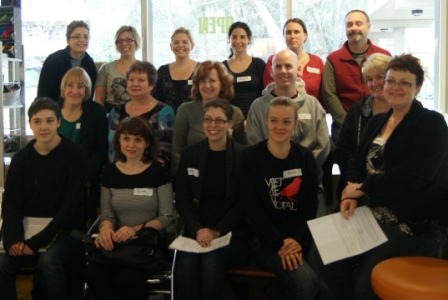


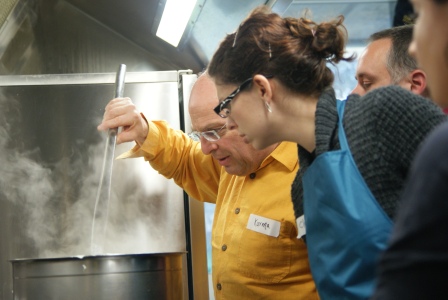


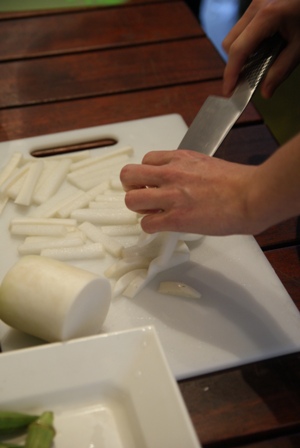
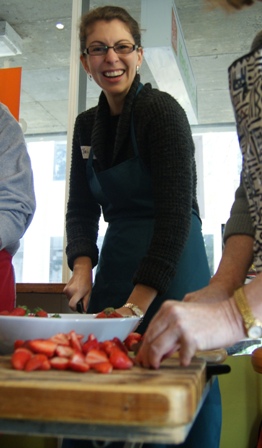
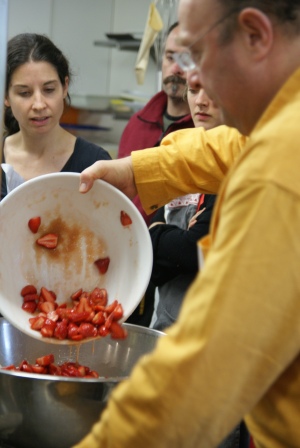



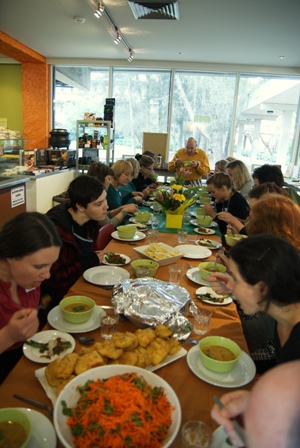






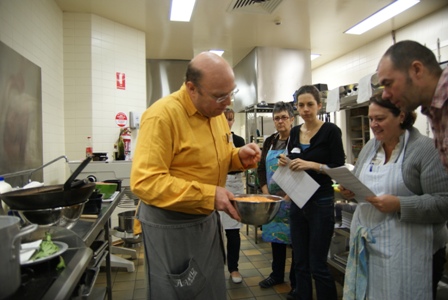
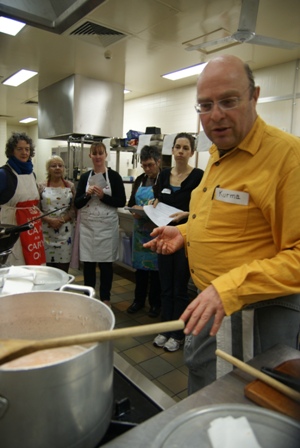


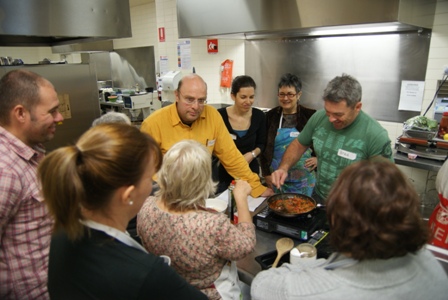
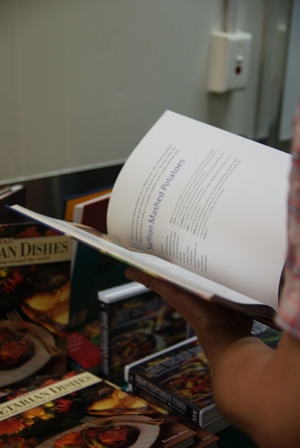

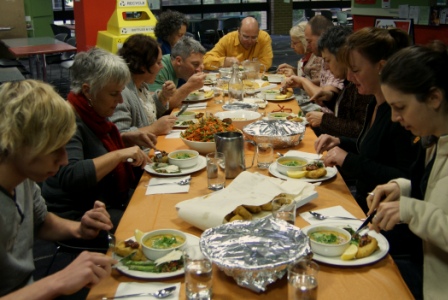
 Lord Caitanya glorifies Madhavendra Puri
Lord Caitanya glorifies Madhavendra Puri




 By Ranjit das
By Ranjit das
 Can purificatory rites, like austerities etc. which are not on the transcendental level minimize or clear away reactions to past sins, or do they only decrease the sinful desires and tendencies by helping us rise to the mode of goodness?
Can purificatory rites, like austerities etc. which are not on the transcendental level minimize or clear away reactions to past sins, or do they only decrease the sinful desires and tendencies by helping us rise to the mode of goodness?





No hay comentarios:
Publicar un comentario